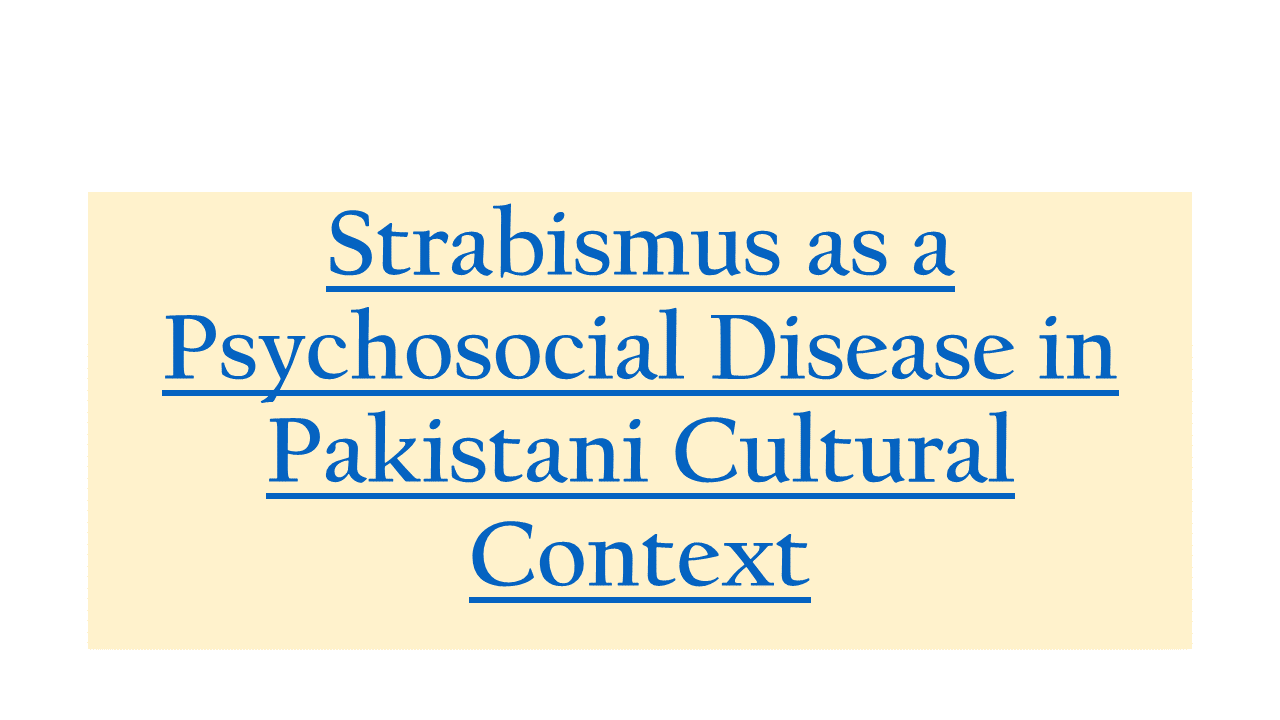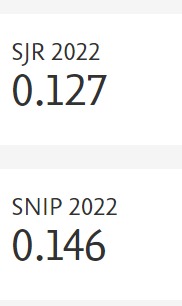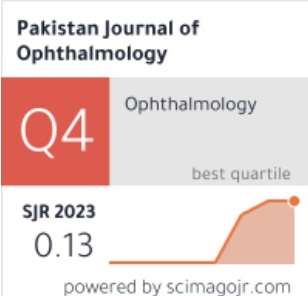Strabismus as a Psychosocial Disease in Pakistani Cultural Context
Doi: 10.36351/pjo.v38i3.1385
DOI:
https://doi.org/10.36351/pjo.v38i3.1385Abstract
Purpose: to find out the relationship between psychosocial issues, self-concept, and interpersonal difficulties in patients with strabismus.
Study Design: Descriptive observational study
Place and Duration of Study: This study is conducted in university of Management and Technology from September 2019 to January 2020
Method:This study included 100 participants (male to female ratio of 1:1), recruited from one government and two semi-government eye hospitals of Lahore, through purposive sampling technique. A demographic sheet including the information about the participant’s age, gender, marital status, family system, reason of strabismus, and duration of strabismus were included in the study. The measures of the study included the indigenous Psychosocial Issues Scale, Self-concept scale,and Interpersonal difficulties scale.
Results: The mean age of the patients was 24.5+2.17. Among 100 patients, 41% were married and 64% were living in a nuclear family system. There were 21% with matriculation, 24% had intermediate and 55% had graduation or masters level of education. The cause of strabismus was genetic (20%), congenital (16%), and due to different health issues such as diabetes (63%). The analysis was carried out by using Pearson product-moment correlation analysis which showed that Psychosocial Problems (PSP) had a significant positive relation withInterpersonal Difficulty (ID) (r=.51, p<0.001) and negativeSelf-Concept(NSC) (r=.55, p<0.001), and a non-significant relationship with positive SC (r.08=p>0.05). The most frequently reported psychosocial verbatim werecryingbehavior (72%), difficulty in finding a job (72%) and feeling worthless (69%).
Conclusion:The results of the study revealed that negative self-concept contributesto causinginterpersonal difficulties in persons with strabismus.

Downloads
Published
How to Cite
Issue
Section
License
Copyright (c) 2022 rabia khadim, Ayesha, Mahnoor, Ushna

This work is licensed under a Creative Commons Attribution-NonCommercial 4.0 International License.






